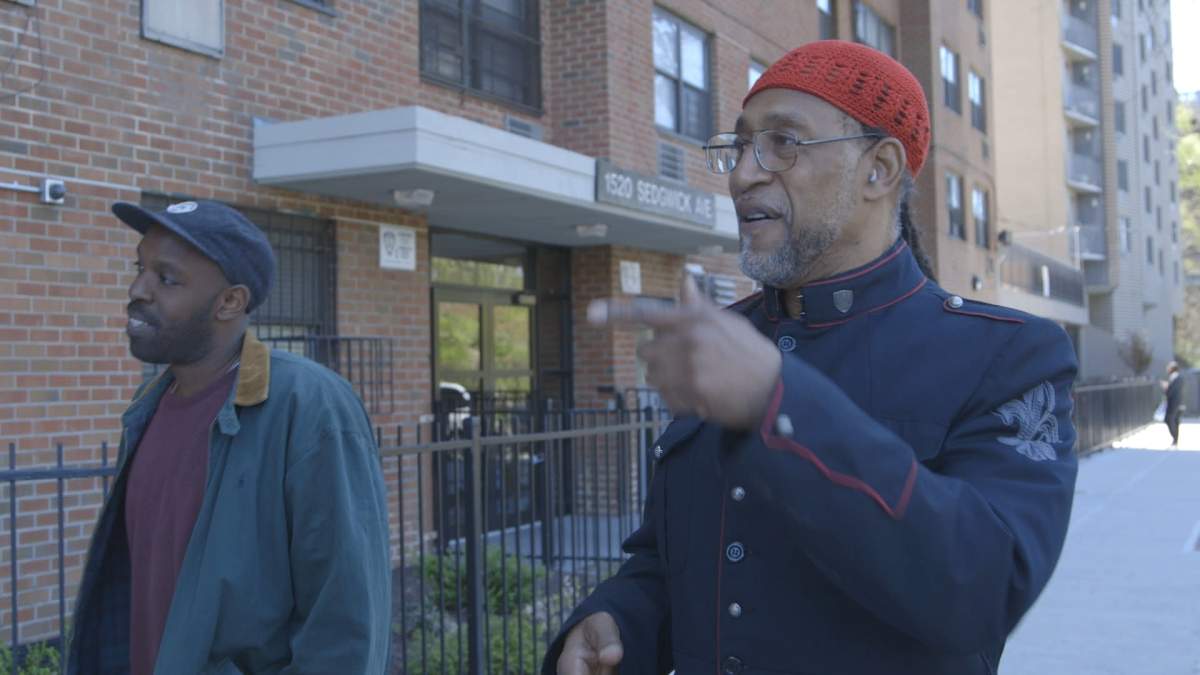The latest musical history documentary from Canadians Scot McFadyen and Sam Dunn (Metal Evolution, Super Duper Alice Cooper), Hip Hop Evolution is a journey to the earliest days of hip-hop in ’80s Bronx and Harlem.

Featuring fascinating footage and interviews with Kool Herc, Afrika Bambaataa and Grandmaster Flash, among many others, it traces the music’s development and influences from the underground to the global phenomenon it is today. Shad (the host of CBC Radio’s Q) acts as a guide to the story.
The musical doc is playing one night at the 2016 Hot Docs documentary film festival in Toronto, and Global News spoke to co-directors and producers Dunn and McFadyen about the doc and how much they learned while putting it together.
Sam Dunn: Yeah, for me… full disclosure: I’m a metalhead. I only had Public Enemy, Beastie Boys and Run DMC records in the ’80s, you know? Going back with Darby [Wheeler, the film’s director] and Rodrigo [Bascunan, the film’s writer] and exploring the real roots of hip-hop was an eye-opening experience. Most people think that hip-hop started with Run DMC, but there was a decade of hip-hop before them, and that was the story we felt hadn’t been told before.
READ MORE: Hot Docs 2016: 13 documentaries to see this year
Why a hip-hop documentary? Why now?
Scot McFadyen: Coming out of Metal, we felt it was a story that could lend itself well to this format and it hadn’t been told. Darby and Rodrigo also convinced us it hadn’t been done well before. We’re into telling the anthropology of music and music culture, and we felt the desire to expand beyond our own base.

Get breaking National news
What are the big differences between metal and hip-hop histories?
SD: One interesting difference is metal musicians typically know where their music came from, and there’s a certain sense of hero worship. Until now, hip-hop hasn’t really been a music culture that’s celebrated its past. In metal, there’s an attitude of oneupmanship, and in hip-hop, that’s even stronger. It just seemed like the time was right and the community was ready to look at where it all began.
SM: Oh, Gene. [Laughs] See, I think we might have fallen on that side before we made this documentary. I’m now thoroughly on the side that hip-hop belongs in the Hall of Fame.
SD: Rock n’ roll, that spirit of being a teenager, coming up with music that’s rebellious… I think that’s the same spirit that’s in hip-hop.
The two forms of music almost feed off of each other, historically and now, and they ebb and flow in terms of popularity.
SM: There’s a kinship. I’m reminded of Scott Ian from Anthax, who grew up in New York and was surrounded by hip-hop. He once said to me, “It didn’t matter whether we were listening to metal or hip-hop, we were angry young kids with different tools to express it.” They didn’t make that distinction that the public and the press seems to make.
Would you say that hip-hop is the dominant musical form of today?
SD: I would say it’s the soundtrack for youth culture, yeah. Metal was back for a period, but now the genre is quite underground, by and large. Big, but underground. Hip-hop is everything now. Hip-hop is underground and overground. It’s so massive, it’s impossible to disentangle it from pop culture. It’s come to define pop culture in a way that we haven’t really seen since Beatlemania.
This is only part of the whole documentary, correct?
SD: Yeah, these are two parts of a four-part series. The full project is coming to your TV soon.
‘Hip-Hop Evolution’ is screening outside on May 5 at 9 p.m. at Innis Town Hall in Toronto. Seating begins at 7:30 p.m. and is on a first-come, first-served basis. Weather permitting.
Hot Docs runs from April 28 – May 8 in Toronto. Visit the Hot Docs website for tickets and showtimes.








Comments
Want to discuss? Please read our Commenting Policy first.